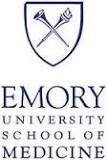RITHM - Resonance Imaging Trial for Heart Biomarkers in Adolescent/Young (AYA) Cancer Survivors
| Status: | Active, not recruiting |
|---|---|
| Healthy: | No |
| Age Range: | 16 - 40 |
| Updated: | 7/28/2016 |
| Start Date: | August 2012 |
Cardiovascular events are the leading non-cancer cause of mortality after childhood cancer,
occurring at a significantly younger age than in the general population. The increased
incidence of cardiovascular events adversely impacts the functional capacity, morbidity, and
mortality of otherwise relatively healthy 20 to 40 year old individuals. Moreover,
understanding of the mechanisms by which cancer treatment could influence the occurrence of
latent cardiovascular events is unavailable. Our group and others have established
independent, noninvasive magnetic resonance imaging (MRI) measures of cardiovascular risk in
middle aged and elderly individuals. Cardiovascular risk include, acute coronary syndromes,
cardiac death, and congestive heart failure. The goal of this application is to show that
childhood cancer survivors at risk for impaired cardiovascular and cerebrovascular health
have increased aortic stiffness, when compared to healthy adolescent and young adult age
mate. Studies are designed to determine if MRI measures of cardiovascular function differ
between adolescent/adult childhood cancer survivors (n=60), age matched controls (n=30), and
adolescents/young adults with planned treatment with chemo- and radiation therapy (n=25).
The investigators propose that MRI markers responsible for cardiovascular events represent
new clinical indicators that could be targeted to treat asymptomatic cardiovascular
diseases.
occurring at a significantly younger age than in the general population. The increased
incidence of cardiovascular events adversely impacts the functional capacity, morbidity, and
mortality of otherwise relatively healthy 20 to 40 year old individuals. Moreover,
understanding of the mechanisms by which cancer treatment could influence the occurrence of
latent cardiovascular events is unavailable. Our group and others have established
independent, noninvasive magnetic resonance imaging (MRI) measures of cardiovascular risk in
middle aged and elderly individuals. Cardiovascular risk include, acute coronary syndromes,
cardiac death, and congestive heart failure. The goal of this application is to show that
childhood cancer survivors at risk for impaired cardiovascular and cerebrovascular health
have increased aortic stiffness, when compared to healthy adolescent and young adult age
mate. Studies are designed to determine if MRI measures of cardiovascular function differ
between adolescent/adult childhood cancer survivors (n=60), age matched controls (n=30), and
adolescents/young adults with planned treatment with chemo- and radiation therapy (n=25).
The investigators propose that MRI markers responsible for cardiovascular events represent
new clinical indicators that could be targeted to treat asymptomatic cardiovascular
diseases.
Inclusion Criteria:
Childhood Cancer Survivors
- Diagnosis of cancer at age 21 or younger
- Current age 16-40 years
- 1year and ≤ 15 years from end of cancer treatment
- Received anthracycline chemotherapy
- Asymptomatic (Appendix VII: absence of palpitations, dyspnea, edema or anginal
symptoms)
- No pre-existing diagnosis with regard to cardiovascular or cerebrovascular disease
status.
Adolescent/young adults with no cancer history
- No prior diagnosis of cancer, diabetes, or lung disease
- Current age 16-40 years
- No history of radiation to chest or neck
- No prior history of chemotherapy
- Asymptomatic (Appendix VII : absence of palpitations, dyspnea, edema or anginal
symptoms) and without a pre-existing diagnosis with regard to cardiovascular or
cerebrovascular disease status.
Newly diagnosed cancer patients
- Diagnosis of cancer at age 25 or younger
- Current age 7-25 years
- Planned receipt of anthracycline chemotherapy
- Planned treatment course ≤ 15 months
- No pre-existing cardiovascular disease
Exclusion Criteria:
All groups
- Subjects with implanted electronic devices, including but not limited to: pacemakers,
defibrillators, functioning neurostimulator devices, or other implanted electronic
devices
- Subjects with ferromagnetic cerebral aneurysm clips, or other
intraorbital/intracranial metal
- Claustrophobia
- Subjects who received total body irradiation or cranial irradiation
- History of acute myocardial infarction
- Significant ventricular arrhythmias (>20 PVC's/minute due to gating difficulty)
- Medical history of moderate or severe aortic stenosis, or other significant valvular
disease
- Women who are pregnant
- Those with pre-existing history (by self report in Group B and review of medical
records in addition to self-report for Groups A & C) of abnormal cardiovascular
function including: congenital heart disease, hypertension, diabetes,
hypercholesterolemia on treatment, a body mass index >35, history of asymptomatic
cardiac dysfunction (defined as an ejection fraction < 40 and/or shortening fraction
< 28) or symptomatic cardiac dysfunction (congestive heart failure), stroke, renal
dysfunction by history/medical records (serum creatinine >1.4), anemia, obstructive
or restrictive airways disease
- Asymptomatic cardiac dysfunction (defined as an ejection fraction < 40 and/or
shortening fraction < 28 on last ECHO or MUGA)
- Participants unwilling to complete the protocol (1 visit for Group A, B; 3 scan
studies for Group C)
- Participants unable to provide informed consent via a guardian or self
We found this trial at
2
sites
Emory University School of Medicine Emory University School of Medicine has 2,359 full- and part-time...
Click here to add this to my saved trials
Click here to add this to my saved trials
